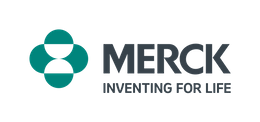Lung Cancer: What Not to Ask
Lessening stigma around lung cancer

(Editor's Note: This content is provided by Merck, a Next Avenue sponsor.)
A diagnosis of any type of cancer can bring a sense of fear and uncertainty to a person’s life. When the diagnosis is lung cancer, there’s another challenge to be met – answering a too-common question from friends or acquaintances.
“Did you smoke?”
Whether the answer is yes or no, no one deserves to get lung cancer. And the unspoken implication that a person is responsible for bringing this life-threatening disease upon himself or herself can prompt feelings of hurt and a sense of shame. Everyone – no matter the cause of their disease – is worthy of care and compassion.
Public education efforts over several decades have heightened awareness of the risks of smoking, including lung cancer. But they may have also inadvertently contributed to the stigma around the disease, according to the American Lung Association.
Many people now think smoking is the sole cause of lung cancer, when as many as 20% of those who die from the disease in the U.S. every year have never smoked or used any form of tobacco. There are other risk factors associated with lung cancer, including secondhand smoke, exposure to radon and air pollution; however, these are often lesser-known.
The Effects of Stigma
Feelings of shame or embarrassment around a lung cancer diagnosis are not merely uncomfortable emotions. Stigma can cause people to avoid seeking treatment and is also linked to disease-related distress and poor health outcomes, the American Lung Association warns. At a time when they most need help and encouragement from others, people with lung cancer may isolate themselves for fear of being blamed.
Stigma may feel particularly bitter for those who were surrounded by early messages that encouraged smoking – even making it appear glamorous and healthful – and then became addicted to nicotine as teens. When it became clear that smoking was dangerous, many found it extraordinarily difficult to quit – a fact that is often under-appreciated. Indeed, nicotine is more addictive than alcohol.
A Journal of Thoracic Oncology study reported that the negative effects of stigma are not limited to only those with the disease. Some caregivers of people with lung cancer also describe feeling “invisible” and lacking support systems, saying others did not ask them how they were coping.
Stigma has also been associated with the relative lack of funding for lung cancer research. So, while lung cancer is the leading cause of cancer deaths in the U.S., it receives comparatively little money, “lagging far behind” that of other cancers, according to an Oncology Nurse study.
For example, statistics from the National Cancer Institute also show that in 2017, the organization spent $320 million on funding for lung cancer research. The total funding for research on breast, colorectal and prostate cancers – which combined take fewer lives than lung cancer – was more than three times higher.
Moving beyond blame
The good news is that stigma around lung cancer can be lessened, just as it has been for other formerly stigmatized diseases, such as breast cancer and AIDS. The American Lung Association suggests that people with lung cancer and their advocates can combat stigma through a variety of efforts:
- Educating the public about the causes of lung cancer beyond smoking
- Responding to insensitive comments by describing how they can be hurtful, even if unintended
- Describing people with lung cancer as more than their disease, but as individuals with names and stories
By sharing the message that regardless of their smoking history, everyone with lung cancer is worthy of care and support, we can help make stigma a thing of the past.

For more than a century, Merck, a leading global biopharmaceutical company, has been inventing for life, bringing forward medicines and vaccines for many of the world's most challenging diseases. Through our prescription medicines, vaccines, biologic therapies and animal health products, we work with customers to deliver innovative health solutions.

